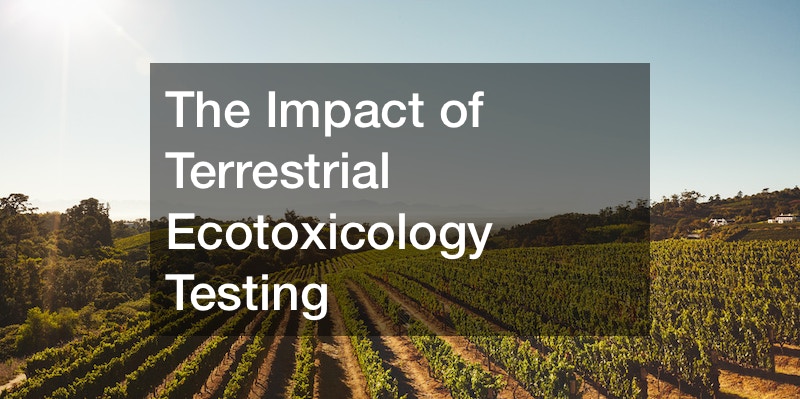The Impact of Terrestrial Ecotoxicology Testing

Terrestrial ecotoxicology testing plays a pivotal role in assessing the potential environmental risks posed by chemicals and pollutants to terrestrial ecosystems. These studies complement their aquatic counterparts, known as aquatic ecotoxicology, by focusing on the effects of contaminants on land-based organisms and ecosystems. The impact of terrestrial ecotoxicology testing is multifaceted:
1. Protecting Terrestrial Ecosystems: Terrestrial ecosystems, including forests, grasslands, and urban areas, are home to many flora and fauna. Terrestrial ecotoxicology studies help identify and mitigate the harmful effects of chemicals on these ecosystems, preventing ecological disruptions.
2. Ensuring Human Health: Pesticides, herbicides, and other chemicals used in agriculture and industry can find their way into terrestrial environments. By assessing their impact on soil, plants, and animals, terrestrial ecotoxicology studies indirectly safeguard human health by ensuring contaminated food chains are identified and addressed.
3. Wildlife Conservation: Many terrestrial species, including endangered ones, rely on specific habitats. Ecotoxicology studies help protect these habitats from contamination, preserving biodiversity and supporting wildlife conservation efforts.
4. Regulatory Compliance: Terrestrial ecotoxicology data is vital for regulatory bodies and policymakers. It aids in the development of guidelines and regulations that govern the use and disposal of chemicals, ensuring that industries operate in an environmentally responsible manner.
5. Sustainable Land Management: By understanding the impact of chemicals on terrestrial ecosystems, ecotoxicology studies inform sustainable land management practices. Farmers, land developers, and urban planners can use this knowledge to minimize environmental harm while meeting human needs.
.






